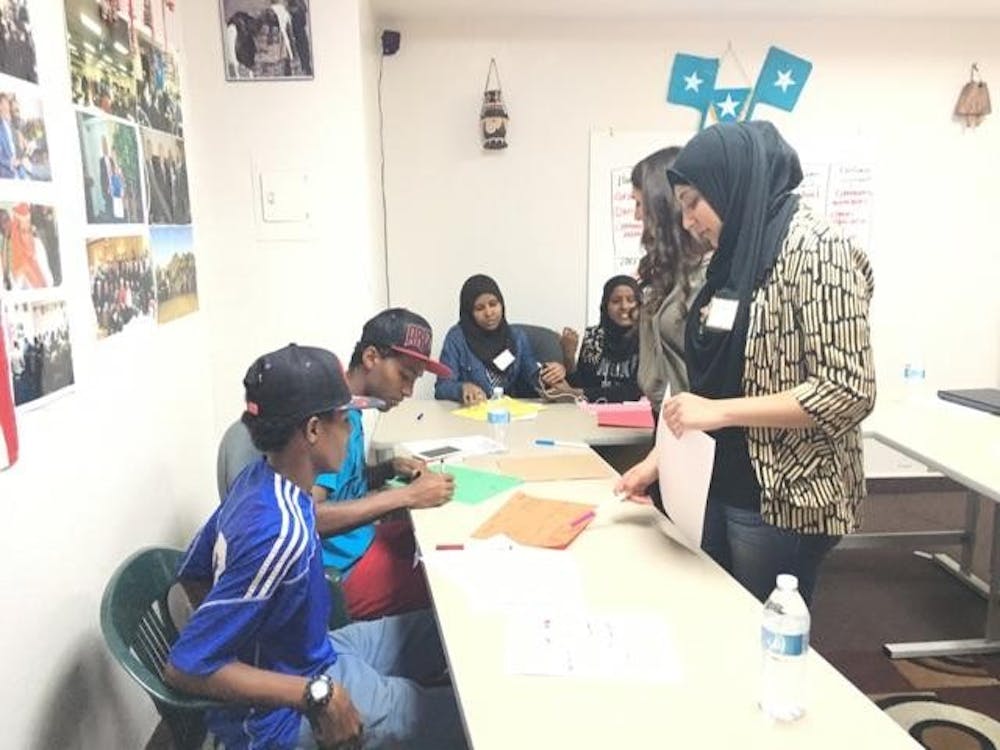Refugee resettlement is a daunting task for state leaders, but Arizona is working to make the transition easier. Services are provided to help refugees find shelter, food and economic stability. However, many refugees are lacking the assistance to help heal a major aspect of their resettlement process: mental health.
Social work and public policy graduate student Clint Reiswig first saw the importance of healthy refugee integration when he began working with the International Rescue Committee. He was surprised at the amount of refugees that come to Arizona.
Working with the IRC opened Reiswig's eyes to the difficulties refugees face even after they resettle in Arizona.
“I can see them, but I don’t realize that they’re refugees,” Reiswig says. “I don’t see the struggles that they’re having or the problems that they’re facing.”
Reiswig later went on to establish the New American Youth Initiative at Arizona State University, an organization that aims to focus on the cultural integration of youth refugees. It can be especially difficult for the youth to find their place in America because they deal with two communities, Reiswig says. At home, the youth are connected to their community and culture, but at school, where they spend most of their day, they’re exposed to a different environment.
“I didn’t realize not only how difficult it was for them to get here, but also how difficult it is for them to actually live like you and I,” Reiswig says.
Reiswig’s initiative aims to provide youth refugees with a mentor to focus on the mental health aspects of the process. Similar to the training that comes with providing refugees with housing and jobs, the mentors would receive a specialized training.
“It’s easy to feel responsible or attached to some of these kids because you empathize so much with their situations and you want to help them,” Reiswig says. “I’m just trying to make it so that the students empathize, but still set barriers because they are a mentor, not a parent.”
Molecular biology and biotechnology sophomore Abdul Manfoukh has worked with refugees through Us UNITED, a student organization that aims to connect students with refugees. While working with refugees, he began to realize how important mental health was to the refugees’ success.
“Essentially, refugees are being relocated but have some sort of mental scarring, and it’s not being addressed by the nonprofits,” Manfoukh says.
Working one-on-one with refugees has allowed Manfoukh to see the benefits of communicating openly and monitoring one’s mental health.
“Naturally, survival things come first, but a close second is mental health,” Manfoukh says. “It’s just really important to raise awareness of these kinds of things.”
The New American Youth Initiative hosted its first program in late February. ASU students were able to meet the refugees that they would be spending time with all semester.
Social work sophomore Victoria Gomez was one of many ASU students who took part in the program.
“As a mentor, all we want to do is inspire future leaders,” Gomez says. “We’re taking part in leadership, getting to know you and cultural diversity activities so that the mentees can get to know our culture and we can get to know their culture.”
Gomez found it very easy to interact with the refugees and found common interests in everyday activities, such as soccer.
“I came in expecting something different, and it was totally just normal, like talking to your friends,” Gomez says.
While months of planning went into making the program a success, at the end of the day, it’s the mentors that make a world of difference.
“It’s really important to find people that are just as passionate about the project as I am because my passion alone can’t drive it to success,” Reiswig says. “I have to find other people who are equally passionate about it and I have been fortunate enough to have found individuals that have that passion.”
Reiswig was surprised to see how enthusiastic his volunteers were, as many of them inquired about continuing on with the program past the end of the semester.
“This is the kind of work that changes you and your perspective,” Gomez says. “It makes you more open to people.”




